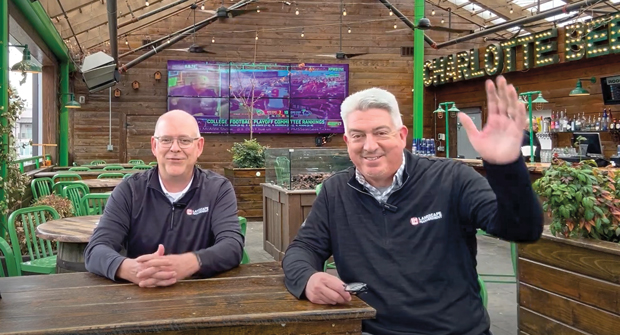Do you know the story of the tourist and the fisherman? You may have heard it from a motivational speaker or read it in a chain email along the way.
I don’t recall where I first heard the tale, attributed to German writer Heinrich Böll, but I often think of it in relation to the spectrum of landscape professionals I encounter doing my job.
There are one-man operators who keep their businesses small so they can be their own bosses and still get their kids off the bus. They may not be making millions, but they’re OK with that. There are the guys who unapologetically want to be the biggest, the best and make millions. And there’s everything in between.
Like any good parable, the story of the tourist and the fisherman has been retold over and over and has many variations, but the message is always the same.
I thought April—during a hectic period some people in the landscape industry call the “100 days of hell”—was a good time to share this story here. I’ll paraphrase it from the story’s Wikipedia page:
A wealthy tourist is taking photographs on a beach when he notices a local fisherman taking a nap in his fishing boat. The tourist is disappointed with the fisherman’s apparently lazy attitude toward his work, so he approaches the fisherman and asks him why he’s lying around instead of catching fish. The fisherman explains that he went fishing in the morning, and the small catch would be sufficient for the next two days.
The tourist tells him that if he goes out to catch fish multiple times a day, he would be able to buy a motor in less than a year, a second boat in less than two years and so on. The tourist further explains that one day, the fisherman could even build a small cold storage plant, later a pickling factory and make millions.
The nonchalant fisherman asks, “Then what?”
The tourist enthusiastically continues, “Then, without a care in the world, you could sit here in the harbor, doze in the sun and look at the glorious sea.”
“But I’m already doing that,” says the fisherman.
This story also crossed my mind during keynote speaker David Horsager’s talk at the Professional Landcare Network (now National Association of Landscape Professionals) Great Escape conference in late February. He cited research showing that the more people seek pleasure, the less of it they have. “Seek satisfaction, not pleasure,” he said.
So, which man in the story is right?
Neither. Or both. We don’t really know. We’re all entitled to want what we want and to decide the best way to achieve it. The point is not to miss out on what gives you satisfaction because you’re too overworked or stressed to see it.

